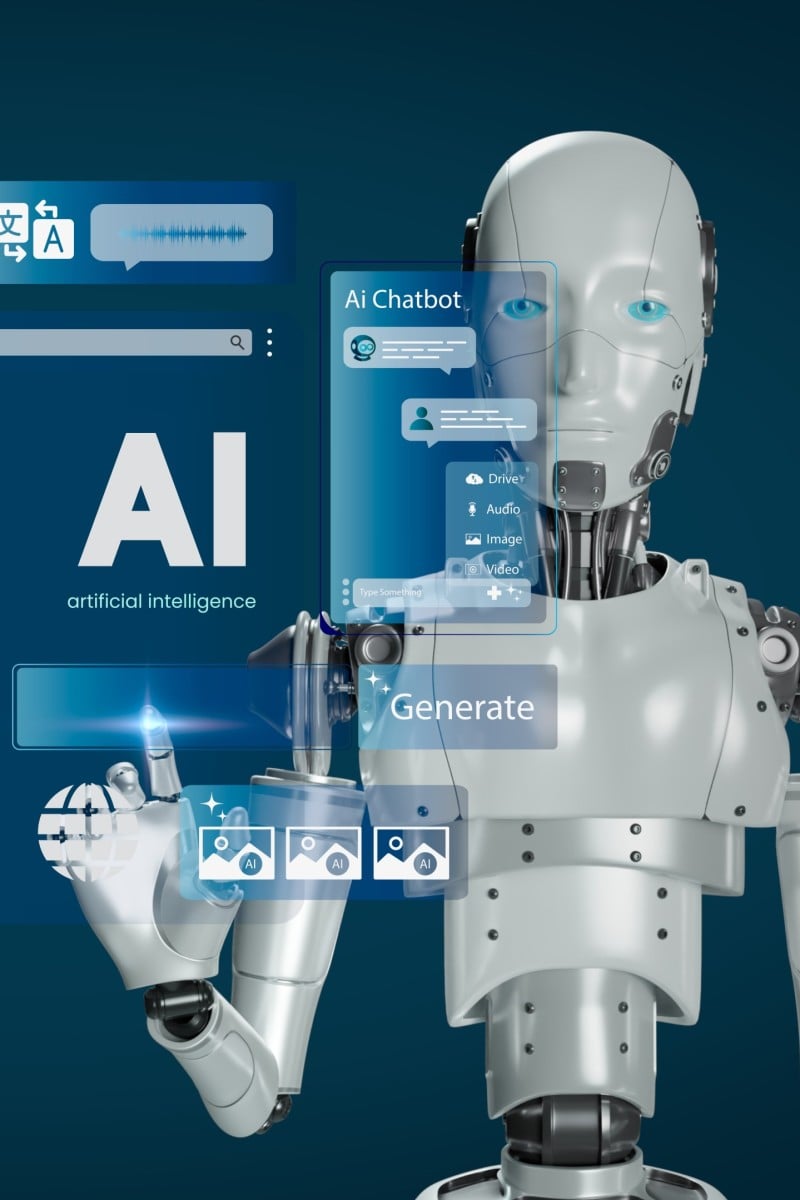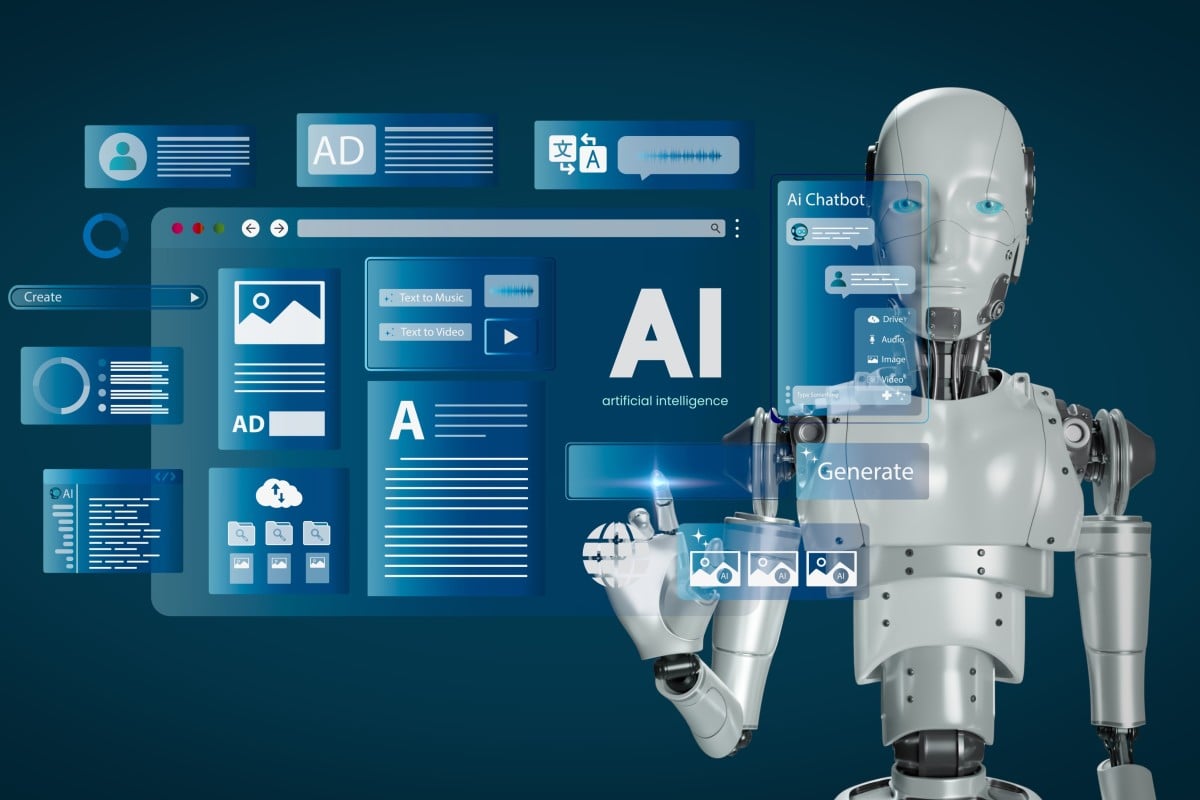
AI agents: how tech is pushing artificial intelligence to work autonomously
As companies develop systems that can analyse information to make independent decisions, they must also protect human rights
 Would you trust a computer to help you complete your everyday tasks? Graphic: Shutterstock
Would you trust a computer to help you complete your everyday tasks? Graphic: ShutterstockHave you ever chatted with a helpful robot online or received a package from a drone? That shows artificial intelligence (AI) at work, transforming everything around us.
In the future, you might even work with new “colleagues”, called AI agents.
What is an AI agent?
An AI agent, also called agentic AI, refers to computer programs that can work on their own. Many companies are trying to make autonomous software systems that are capable of processing information, making decisions and taking actions to achieve specific goals, often without human intervention.
What makes it different from the AI chatbots we have already seen?
AI chatbots respond to users’ questions, making them effective for simple interactions.
In contrast, modern AI agents can now operate in the background, completing actions and linking tasks between different applications without interrupting the user’s workflow.
AI agents are not just a passing trend; they have become the latest battleground of the tech world as the biggest companies aim to create the best one.
Over the years, AI agents have evolved significantly, automating increasingly complex tasks (see graphic).
How can agentic AI be useful for us?
As these technologies advance, it is important to understand how they work. Below, we delve deeper into various forms of AI agents.
-
Computer-using agents (CUAs) are a type of AI agent that drives a browser for its user. They can book a restaurant, make online purchases and more – all at the same time. CUAs scan a webpage and interact with it by typing, clicking and scrolling the way humans would. OpenAI launched a CUA in January, called Operator. While it is still a work in progress, Operator blends multimodal reasoning with workflow automation to handle any task that is asked of it.
-
Multi-agent systems use several AI agents that collaborate or compete to handle complex workflows. For example, Anthropic has launched a feature that uses multiple Claude agents to conduct complex research. In this system, different AI agents work at the same time to search for information, changing their paths based on what they find. This mimics how humans search for information, but with this system of AI agents working together, the process becomes much quicker.
-
Hybrid agents combine the speed and automation of AI with human oversight, allowing the AI agents to assist in adaptable and balanced decision-making. This is similar to Microsoft’s Copilot, which offers AI assistance while keeping a human in the loop. Some argue that keeping humans involved is especially important if AI agents are involved in high-risk decisions.
Tech for a better planet: how student innovations can lead the charge
How will AI agents affect the future of work?
A report released by the World Economic Forum in January predicted that by 2030, AI would displace 92 million jobs, but there is a silver lining: AI will also create 170 million new jobs.
One emerging role could be for AI communicators, who must be able to imagine how AI can improve workflows. By enhancing our skills in AI communication, we can ensure these systems’ outputs are safe, ethical and beneficial for everyone.
In a report on AI agents released last December, the World Economic Forum pointed out that AI agents working independently could have many risks for human rights, privacy and safety. After all, AI can hallucinate false information, operate on biases and misunderstand vague instructions. The report urged the importance of closely monitoring, testing and researching the effects of AI agents before deploying them.
As AI systems grow more sophisticated, we will need to manage the risks if we hope to leverage their capabilities.
Sponsored by
Preface invites you to try their quiz on AI – how much do you understand about this new technology? Click here for more information.
